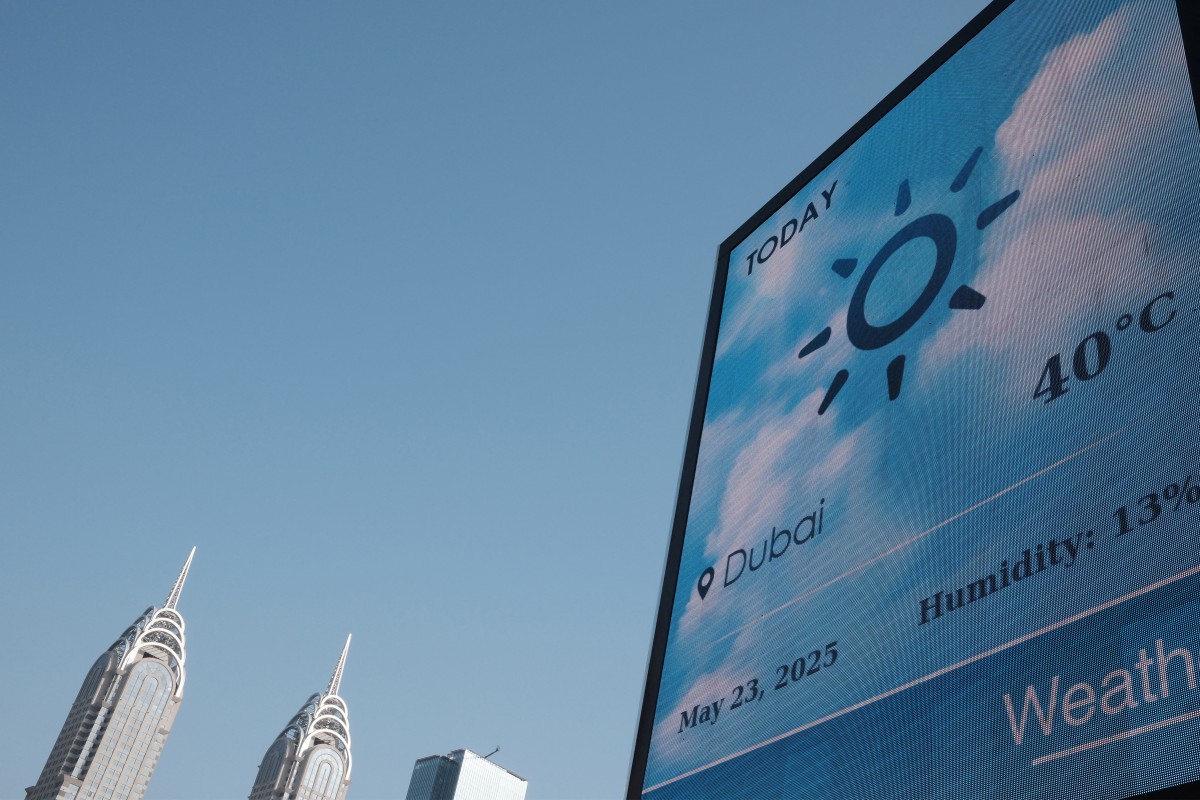Dubai, United Arab Emirates – The United Arab Emirates registered a sizzling 50.4 degrees Celsius on Friday, the highest on record for May, following weeks of sweltering temperatures in the desert nation acutely vulnerable to climate change.
“I was drenched in sweat by the end of the prayers,” he said, preferring not to give his name, adding that he felt like he was “about to faint”.
The high temperature of 50.4°C (122.7 Fahrenheit) is the hottest in May since records began in 2003, outstripping the 50.2°C seen in 2009, the National Center of Meteorology told AFP.
The UAE, one of the world’s biggest oil exporters and host of the COP28 climate talks in 2023, has just emerged from a record-breaking April with an average daily high of 42.6 degrees Celsius.
‘Swaying right and left’
The NMC on Friday urged residents to stay safe, advising them to keep out of the sun, drink plenty of fluids, wear appropriate attire and use sunscreen.
Friday’s temperatures were accompanied by high humidity of up to 80 percent in some parts of Abu Dhabi.
“I literally saw someone swaying right and left before he stopped by the side of the street,” said Dubai-based marketing specialist Mohammed Juma, 31. “God help people, truly.”
Youssef, 45, who operates hot air balloons for tourists in Dubai, said the “suffocating” conditions made him feel “unable to do anything at all”.
“The whole problem is in the humidity. The air had no oxygen,” said the 45-year-old, who did not want to give his full name.
Scientists have shown that recurring heatwaves are a clear marker of global warming and that they are set to become more frequent, longer and more intense. The number of extremely hot days has nearly doubled globally in the past three decades.
Outdoor workers in Arab states face some of the highest exposure to heat stress in the world, with 83.6 percent suffering from excessive heat exposure on the job, according to a 2024 report from the International Labour Organization, a United Nations agency.
The risks from a warming planet were on stark display last June, when more than 1,300 people died while performing the annual Muslim hajj pilgrimage to Mecca in neighbouring Saudi Arabia, according to an official tally — most of them unauthorised pilgrims exposed to long periods outdoors.
According to a Greenpeace study in 2022, the Middle East is at high risk of water and food scarcity as well as severe heat waves as a result of climate change.
The report, which focused on six countries including the UAE, found the region was warming nearly twice as fast as the global average, making its food and water supplies “extremely vulnerable” to climate change.








